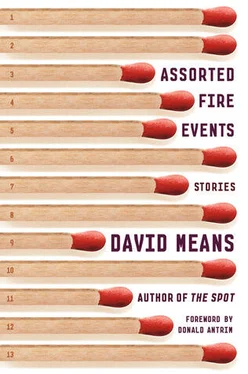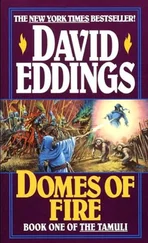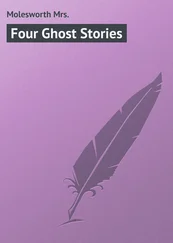THE FIRST day back he began chopping like a maniac, going at the wood day and night — or so they say. He’d been back six years when I was old enough to notice him, and by that time he went a bit slower (at least that’s what I was told) but still split a good cord, a full cord, in about two hours depending on what kind of wood it was and how large around the tree was; he had a gas powered wedge that halved the logs; then he just threw them into place and took a clean hard swap, usually just one chop was all it took, and then he’d swish them out of the way with his steel-toed boots and do another; all day, most days, seven days a week, barring only the worst kind of weather. When he stopped, there were usually dew drops of sweat and condensation on his black beard; in cold weather, a dangling clot of ice; in the summer there was a fine little braid of red welts under the hairs and just above the skin. Prickly heat. The lumberjack shirt he wore, traditional red and black Pendleton of good wool, graced him deep into summer. When he killed himself — August I, 1985—he was in the shirt, next to a fresh cord of seasoned oak stacked against his garage. His wife was out there undoing the buttons slowly to get to the wound, small and round, produced by a teflon-coated bullet (the papers said) that eased neatly into his chest and right out, lickety split, the wonders of moon-shot technology going a step further than nonstick pans (my father muttered). Theories abounded about the exact reason, but suicide being an unexplainable enigma it didn’t take much to put most of it on Nam, on his role in the siege at Khe Sanh, on buddies lost and all that, although the papers mentioned he was being sued for taking down a red maple on private property without permission, going right up the Jansons’ driveway (one of those washed gravel loops to the front of their ceder sided ranch), tying a rope around the tree and then his pickup hook, getting the chain saw revved up, and then telling me to ease up on the clutch when he gave a shout (being only fourteen I wasn’t versed in the workings of a manual shift, but I did as I was told, easing up slowly, and the truck jerked back, and the tree went down behind me with a loud, dust-clouded whomp). Before I was out of the truck’s cab, he was slicing into the large trunk, getting right into the heart of the tree, which was a good hundred and twenty years old according to my ring count (later). I kept quiet about my role in his demise. It wouldn’t do to let people know that maybe it wasn’t Nam that caused him to shoot a nice, neat hole in his heart, and that maybe it was just other stuff, the value of trees being dissembled, the wonderful easing up of weight when the head of the ax left the arch and pulled him into the chop. (I’d watched a million times.) The threat of not being able to go into the forested yards of his neighbors, or the local parks where he got most of the trees, to take down the excess growth, was too much for him; his lumberjack days were numbered.

DAVID MEANS
ASSORTED FIRE EVENTS
Born and raised in Michigan, David Means is the author of four story collections, including The Secret Goldfish and The Spot. His work has appeared in The New Yorker, Harper’s Magazine, Zoetrope, Best American Short Stories, Best American Mysteries, and The O. Henry Prize Stories. He lives in Nyack, New York, and teaches at Vassar College.
PRAISE FOR ASSORTED FIRE EVENTS
“Incidents that might seem melodramatic in the hands of another writer lead instead to crystalline reflections on the limits of self-knowledge and the ways in which our past fails to define us.”
— The New Yorker
“An astonishing collection. Each story possesses the density of detail, the social sweep and force of a realist novel. What most situates Assorted Fire Events within the realm of greatness (and there is no lesser word for the achievement here) is Means’ ability to develop dazzling, skillful narratives that enrich and deepen stories of lives that matter … These stories are never less than beautiful, rich in language, feeling and sensibility.”
— San Francisco Chronicle
“Remarkable … A book that not only will educate short-story writers on the craft of the story for years to come but can also move present-day readers to surprising tears … Assorted Fire Events [has] a place in my lineup of memorable fiction.”
— Jonathan Levi, Los Angeles Times Book Review
“A worthy shelf-mate to Denis Johnson and Tobias Wolff … Means writes with sure-handed emotional intensity, conjuring brushfires of the psyche in lushly sensual detail.”
— Margot Mifflin, Entertainment Weekly
“Clarity, in addition to an abiding preoccupation with catastrophic loss, is a signal trait of Means’ fiction … Despite their contemporary setting, Means’ stories have an elemental quality with echoes (some more explicit than others) of Greek myth and tragedy … To the patient, attentive reader they bring a deep, enriching sense of the gravity of life.”
— Laura Miller, Salon
“Unlike anything I’ve ever read. They’re not exactly experimental, but written from an indefinable perspective … There’s something else at work, an almost mythological component, which allows these stories to reach back and forth through time and memory until they become oddly universal … Assorted Fire Events strips life down to its very essence.”
— David L. Ulin, Newsday
“Means expertly crafts thirteen intensely incisive explorations into the depths of the American mind … These wonderfully penetrating stories are lamentations for the dead, the unknown, and the unloved. In his search for the perfect gesture Means creates just that, beautifully articulating the human capacity for pain and for revelation.”
— Review of Contemporary Fiction
“Astonishing … Reinfuses the genre with Raymond Carver— school skill … Means’ mixture of sentences — some snug and others rolling — furnishes his stories with an unmistakably original texture and voice … Captures the trying moments of life … where pain sears the heart and dupes the mind.”
— The Kansas City Star
“The voice that Means has created is altogether a knowing one and yet is simultaneously aware how absurd contingencies can at any moment crash into the assurances of omniscience … Perfect pitch.”
— Bloomsbury Review
“Means has an impeccable ear for poetic cadence, and throughout [these] stories, he conjures men and women whose hearts and minds are roiling with fiery torment … Means is a deft stylist, who occasionally affects a Carveresque economy.”
— The Village Voice Literary Supplement
“Stunning … Establishes Means as a formidable new writer. It is one of the most transfixing, memorable books to hit the stands this year.”
— Time Out New York
“In the assured manner of such unsettling storytellers as Banks or Wolff, Means ushers us toward knowledge with command and verve.”
— Publishers Weekly
“Very compelling. This powerful collection should appeal to Rick Moody and Stephen Dixon fans.”
— Jim Dwyer, Library Journal
“These stories are wonderfully moving. Means’s characters become richly alive; their brutal, sad memories are expressions of linguistic and emotional complexity, of the perverse and compelling states of mental order that give dignity and beauty to life. Here is a book that accomplishes a paradox: the impression of wholeness and solemnity produced from lives that fall to pieces.”
Читать дальше













